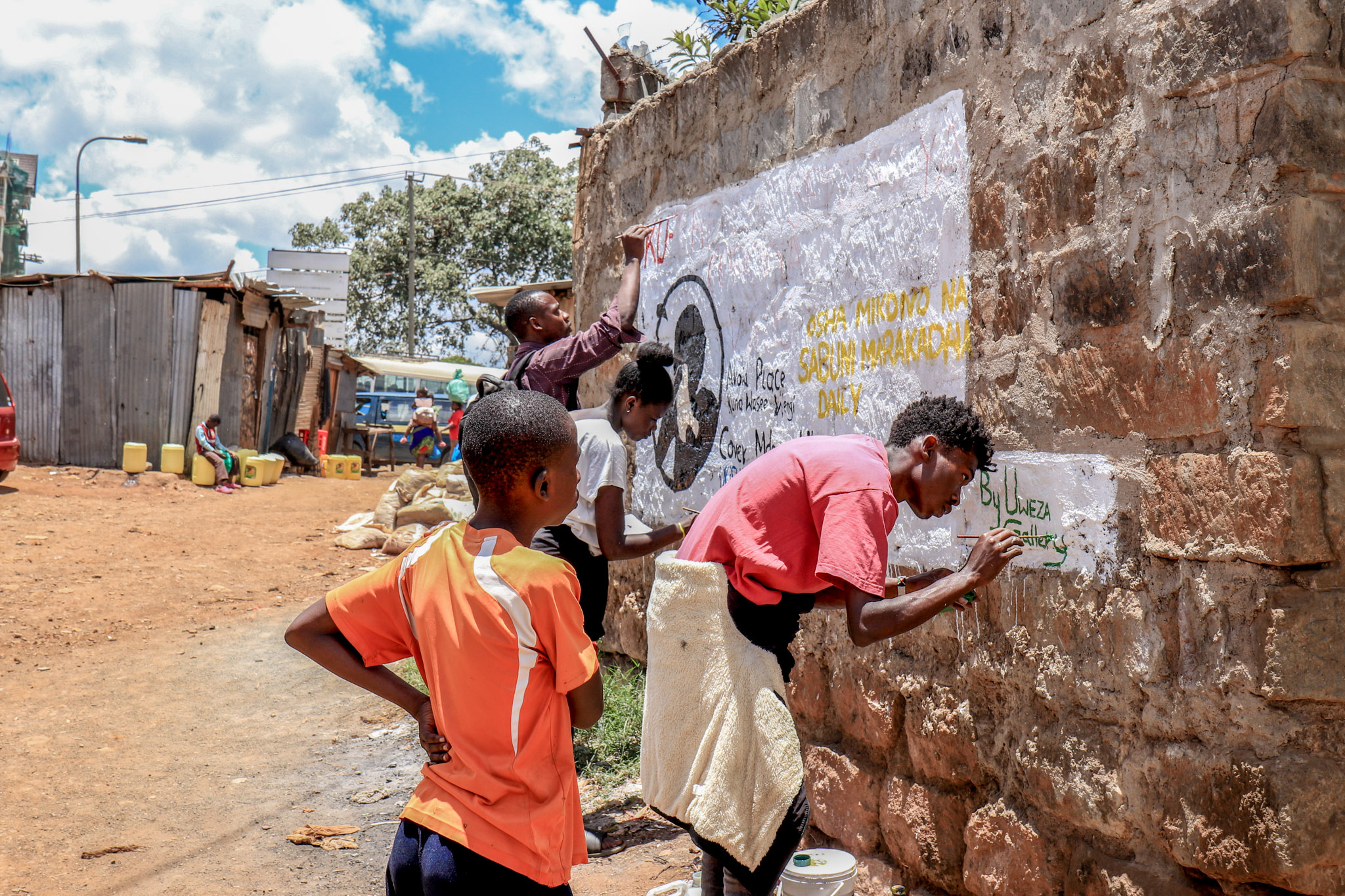
Kenyan artists paint murals to raise awareness of coronavirus

“To prevent the spread of Coronavirus: Avoid places that have lots of people; avoid shaking hands or hugging; wash your hands with soap many times a day.”
In Kibera, a sprawling informal settlement on the outskirts of Nairobi, Kenya, painted murals are appearing along narrow alleyways and across bridges and walls. The street art of the slum has taken on a practical approach in recent days; with reds, blues, and greens, spelling out instructions in Swahili slang on how to prevent the spread of the coronavirus.
This is the work of five artists from Kibera, often referred to as one of Africa’s largest urban slums and home to almost a million people. Since Kenya’s announcement of its first coronavirus case on March 13th, paint brushes have been transformed into educational tools, in a bid to prevent the spread of the virus in one of Nairobi’s most densely populated neighbourhoods.

“We decided as artists to go around to write murals, to spread the message of the coronavirus. We wanted to emphasise the common enemy of the virus, that people should be aware of it, they should not take this virus for granted, they should be serious,” says artist Josphat Ndemo, 25, from Kibera.
Ndemo works alongside other local artists who are members of the Uweza Art Gallery, a space for young artists from Kibera to create and market their own original art. He has been painting since he was 12 years old, usually working on canvas with acrylics to create a range of striking images from portraits, to animals and buildings.
Now the artists of Uweza are now turning their attention away from their art and towards the wellbeing of their community. “We are not drawing, we are not making pieces of art. We decided to take initiative to help minimise the spread of the coronavirus.”

So far, eight murals have been painted and Josphat and his team of local artists plan to paint more as they search for the right spaces to do so.
With the number of coronavirus cases in Kenya reaching 31 as of March 26, informal settlements like Kibera are particularly vulnerable.
In a neighbourhood where homes are stacked close together, and entire families share a single room, the recommended self-isolation can be unrealistic on the ground. Meanwhile, the directive to regularly wash hands is not so simple for the thousands of residents who lack access to running water.

Despite the limitations that come from living in an informal settlement, Ndemo believes that educating people to take precautions wherever they can is vital. “It is not enough but let us use what is there, it is our duty to take care of our health and our family, the people close to you.”
With the eyes of an artist, Ndemo can see how the visual aspect of art has the power to make a positive impact in times of crisis. “Art speaks a lot. It communicates, it is something that is visible, it captures the eyes and once the eyes are captured the mind is captured,” he explains. “And people are responding well. People who thought this virus was not serious are seeing the murals and changing their minds. They are taking caution.”







